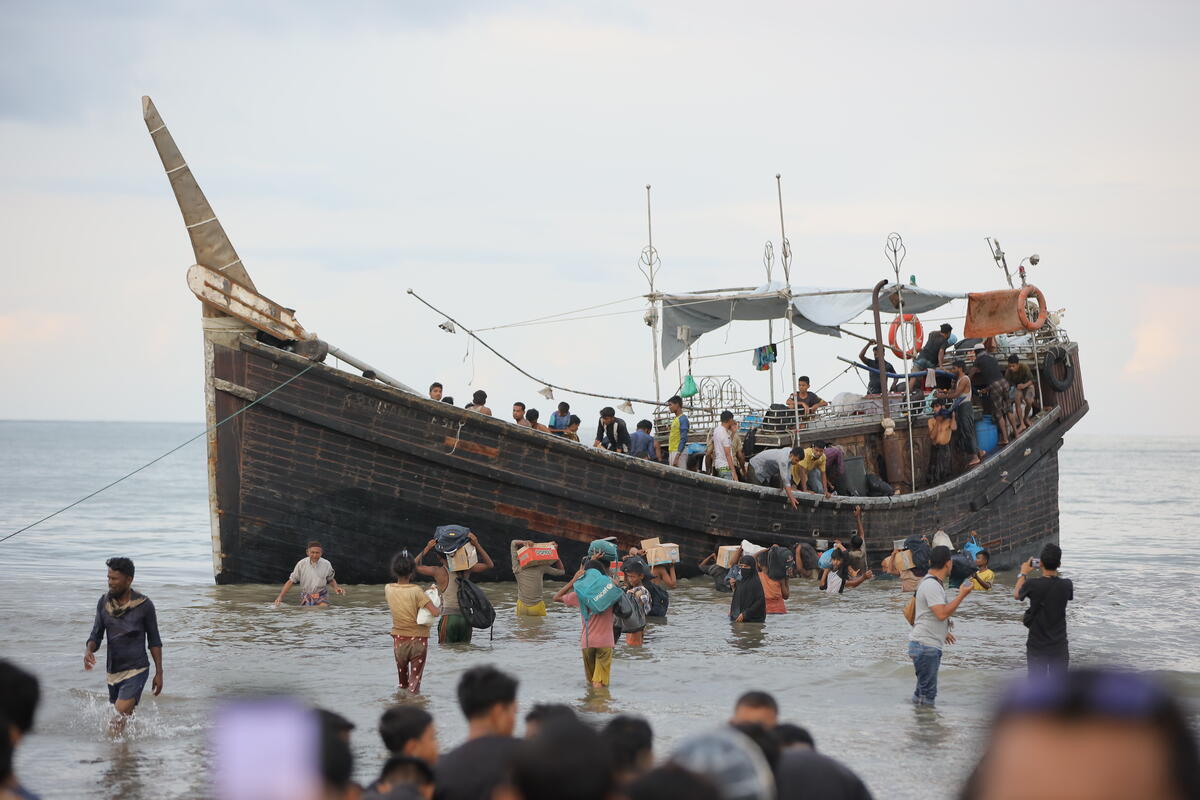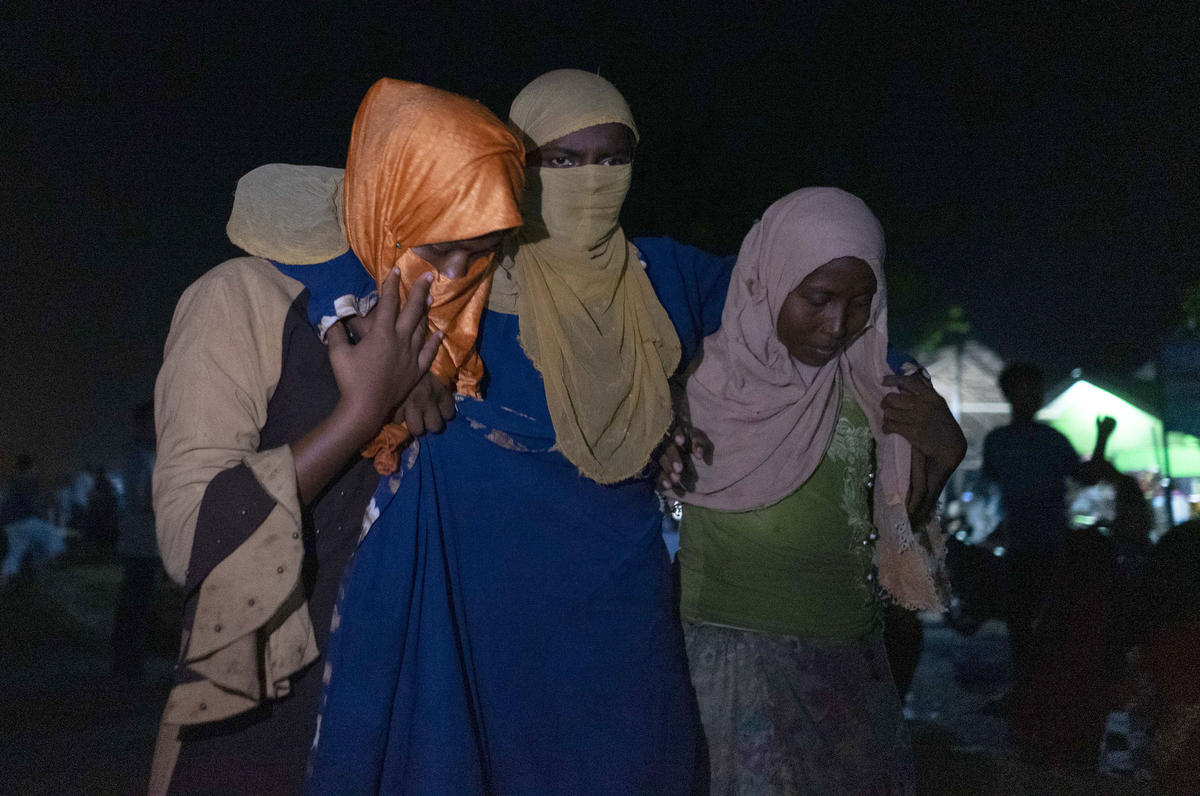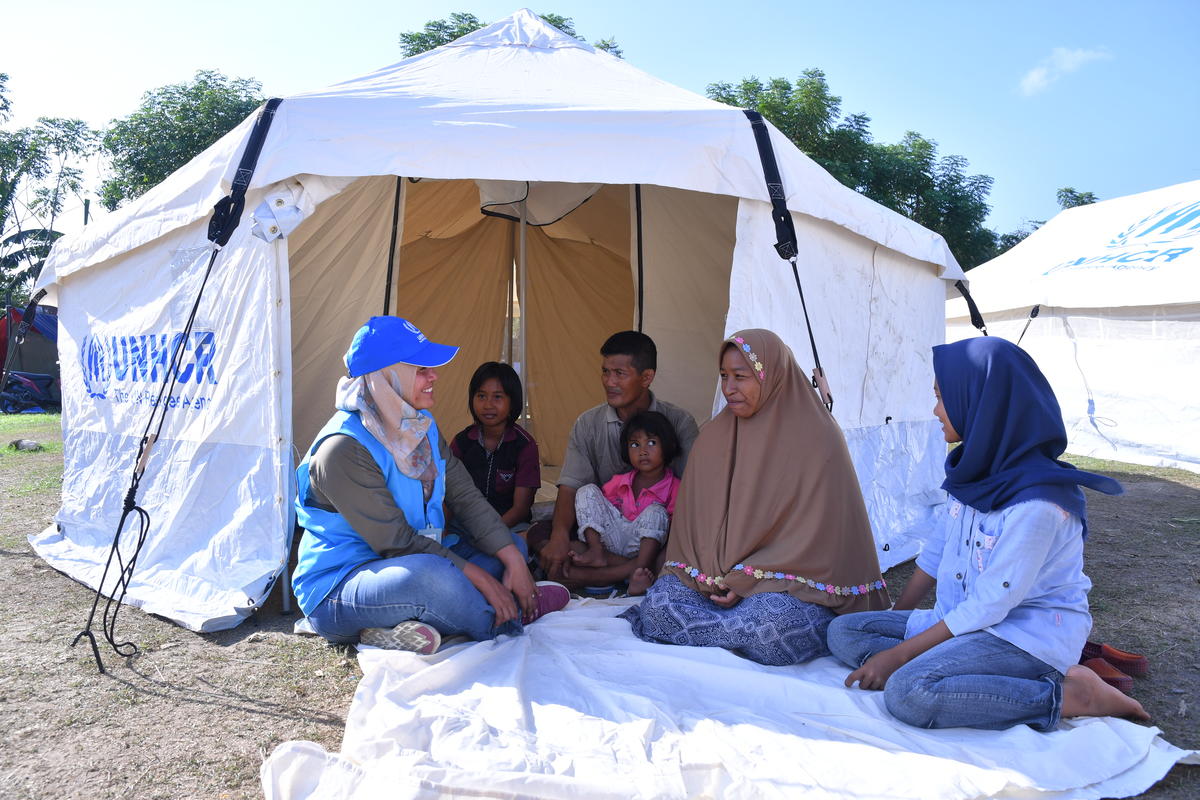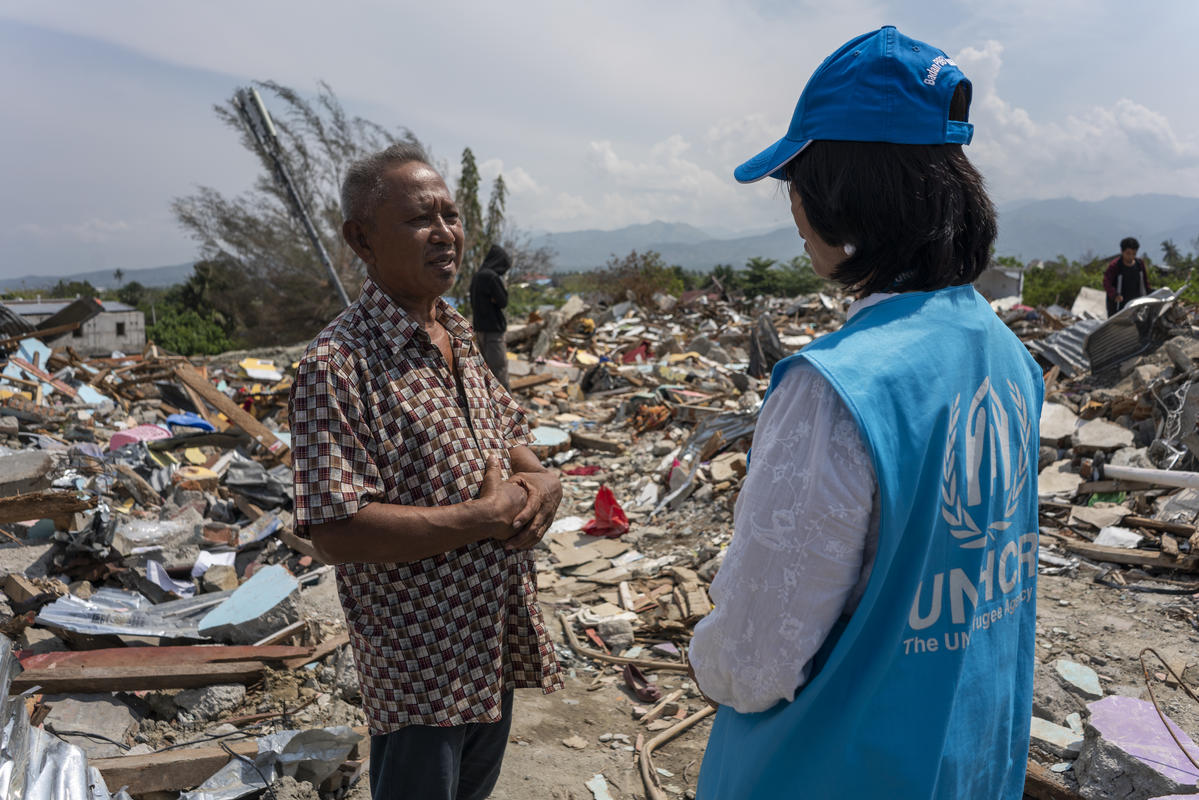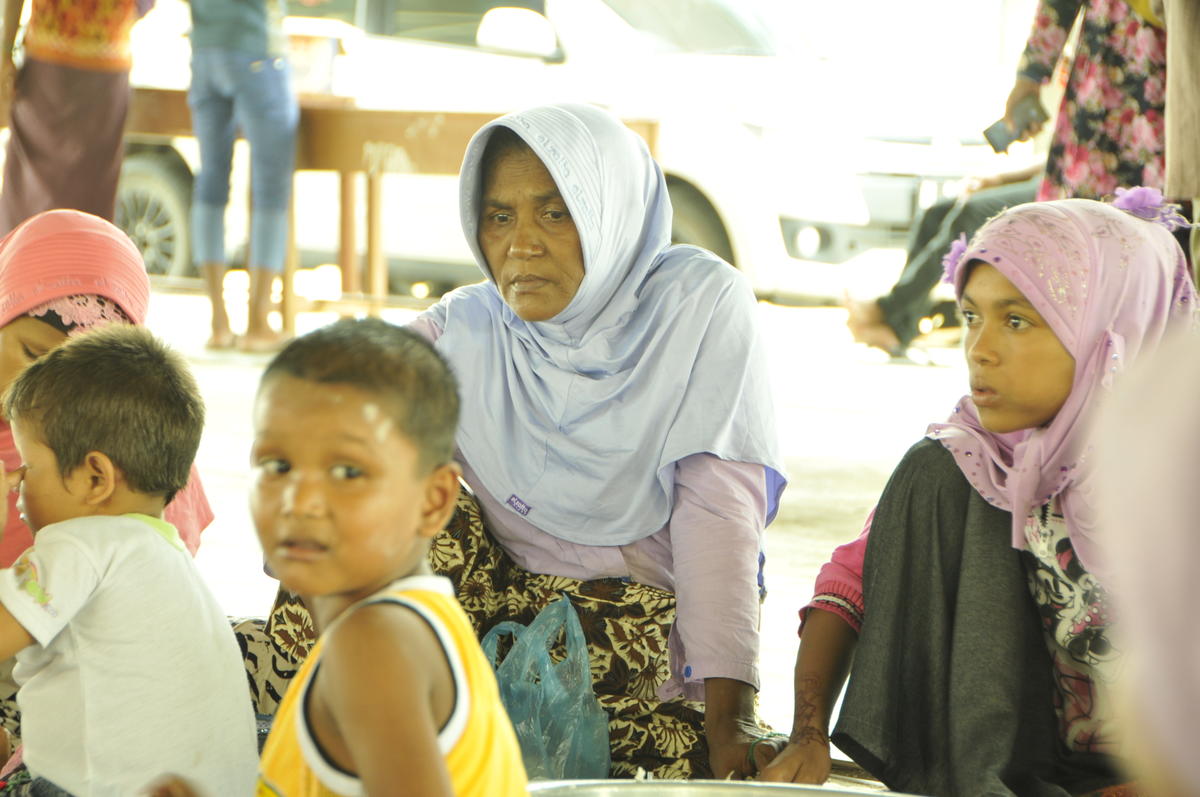Playing the waiting game in Indonesia
Playing the waiting game in Indonesia

JAKARTA, Indonesia, October 30 (UNHCR) - Ardi Sofinar's phone never stops ringing. He answers every call calmly and patiently, even in the middle of the night. "The refugees and asylum-seekers call when there are problems or disputes," said the UNHCR protection associate in Medan, Indonesia. "They call because they trust that we can help."
Ardi is one of four UNHCR staff members based in Medan, covering a large geographical area with more than 1,100 asylum-seekers and refugees. The agency now has six such outposts in the Indonesian archipelago to assist the growing number of people seeking safety from conflict and persecution back home. Some arrivals mistakenly see Indonesia as an easy departure point for Australia, and risk their lives on smuggling boats that too often sink along the way.
In the last five years, UNHCR has seen the number of refugees and asylum-seekers approaching UNHCR in Indonesia increase 18-fold - from 385 in 2008 to 7,218 last year - a trend that is straining processing capacities. There are currently more than 2,300 refugees and over 7,600 asylum-seekers in the country.
"In Indonesia, UNHCR processes asylum claims in the absence of a national legal framework that can do so," said Manuel Jordao, UNHCR's representative in Indonesia. "We have expanded our outreach in response to the growing numbers but cannot match the capacity of a national government."
In Jakarta and the six outposts, UNHCR staff register arrivals who wish to seek asylum, conduct interviews to determine refugee status, and seek solutions for the refugees. They also caution people against the use of smuggling boats or other illegal transport routes that could put their lives and the lives of their families at risk.
Those who are intercepted when entering or leaving Indonesia irregularly are taken to immigration detention centres (IDCs) run by the Indonesian government.
At Belawan IDC, one of 13 such locations holding refugees and asylum seekers across the country, detainees share rooms that are locked from 10 at night to 10 in the morning daily. In the day time they come out to watch TV and take turns at communal cooking. Overcrowding is a constant problem. In April this year, violence broke out between two groups from Myanmar, resulting in eight deaths. The cells have been repaired since, but some inmates are still traumatized.
"I am afraid of the fighting. I left Sri Lanka because of violence but I found it here too," said Siva,* an ethnic Tamil refugee who prays he will be released soon. UNHCR advocates with the authorities for all refugees and asylum seekers to be released from detention to community housing managed by the International Organization for Migration. Vulnerable people such as women, children and the elderly are prioritized for release.
Hussein* fled Afghanistan for Iran and over the course of 15 years found his way to Indonesia with his wife and two children. They have been living in a community housing project outside Medan for about a year now, surviving on monthly allowances from IOM.
"Our main expenses are groceries and things for the children," said Hussein, aged 30. "We cook for ourselves and can move freely. I used to go for English and computer classes outside, but now the teacher comes here twice a week."
While daily life is tolerable outside of detention, many struggle with the uncertainty. Nadir,* 16, has been living in a shelter for unaccompanied minors in south Jakarta since April. Run by the Church World Service with UNHCR support, the shelter's calm and nurturing environment belies the turbulent lives of the young refugees and asylum-seekers living here.
Five years ago, Nadir fled Afghanistan for Quetta, Pakistan, and became the man of the house after his father and brother died. The ethnic Hazara did odd jobs to support his mother, sister-in-law and her three children, but after 18 months left for Iran to escape the rising violence against Shia Muslims.
Three years later he was deported from Iran to Afghanistan, and made his way back to Pakistan to find that his family had been resettled in Australia. A family friend paid for him to be smuggled from Pakistan to Indonesia, where he planned to catch a boat to Australia.
"Australia asks: Why do you jump queue? But they don't know how long the queue is," said Nadir. "Everyone who takes this journey, there is something that forces us to do so. But we are treated like criminals. They don't see the other side."
When he fell on hard times in Jakarta, the teenager aborted plans to take the boat and approached the shelter for help. He is looking forward to discussing his asylum claim with UNHCR, and hopes that he will be recognized as a refugee so that he can be reunited with his family in Australia.
For many refugees who cannot go home for fear of persecution, resettlement to a third country feels like the only way out for now. But the queue is long and there are a very limited number of spaces made available by resettlement countries. UNHCR submits the most vulnerable cases for consideration.
Outside Medan, Hussein and his family are hoping for some good news. They have been interviewed by Australian officials for potential resettlement. "I know Australia is a multicultural country, there is no discrimination," said Hussein. "My kids will have a good education. Maybe I can find work again."
UNHCR has consistently advocated that refugees need more timely solutions, be it resettlement, more opportunities in host countries or voluntary return when conditions improve back home. Referring to the alternative, UNHCR's Jordao said, "After all they have been through, it would be unconscionable to drive them to such desperation that they would consider risking their lives on dangerous and exploitative boat journeys."
*Names changed for protection reasons
By Vivian Tan in Jakarta, Indonesia


